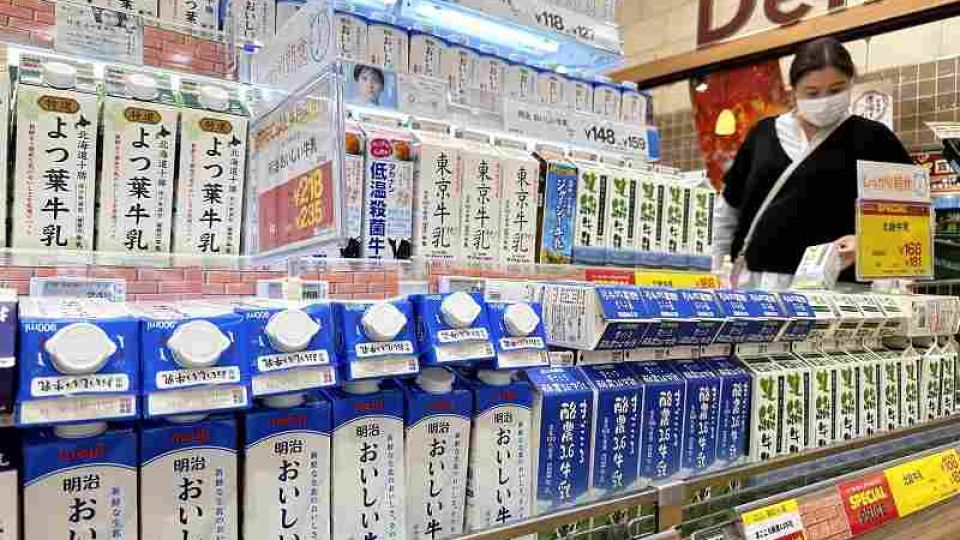November 18, 2022
TOKYO – Dairy farmers fear that rising prices may cut into consumer demand for milk, thereby worsening a natural drop-off in demand that occurs when schools close for the now-approaching New Year’s holiday season.
With schools lunches set to stop, dairy farmers are once again facing a glut of raw milk — the base ingredient for dairy products — and may be forced to dump large amounts of the product.
Making matters worse, sales may fall as major companies producing dairy products have raised prices in response to rising feed prices. The Agriculture, Forestry and Fisheries Ministry has even begun taking action to support the farmers.
The three major companies producing dairy products — Meiji Co., Morinaga Milk Industry Co. and Megmilk Snow Brand Co.— raised their wholesale prices for dairy products by 2.8%-10.2% in November. In the wake of Russia’s invasion of Ukraine and due to the declining value of the yen, the price of feed for dairy cows has shot up, thereby inflating the companies’ production costs.
For supermarket operators, who face fierce competition from one another, setting appealing prices for dairy products is important in retaining and attracting customers. In response to price hikes by major dairy product manufacturers, supermarkets have raised their retail prices, but so far, “sales volume has not been affected [by the price hikes],” according to Aeon Retail Co.
However, with price hikes extending to a wide range of products, there is a possibility that consumers will cut back on dairy consumption in the future.

The Yomiuri Shimbun
Dairy farmers have grown impatient. Toru Nakaya, head of JA-Zenchu, or the Central Union of Agricultural Cooperatives, said at a press conference on Nov. 10, “We want to try to avoid dumping milk, but the situation is very difficult.” The Japan Dairy Association anticipates that demand for dairy products from November through next March will fall by 4% due to price hikes.
Amid the COVID-19 pandemic, demand from restaurants for dairy products dropped last year, making dairy farmers fear they might be forced to dump some 5,000 tons of milk over the New Year’s holiday season. Ultimately, however, thanks to the government’s call for increased consumption and other measures, they were able to avoid dumping any milk.
Balancing supply and demand is no easy task for the dairy industry. Once milking begins, cows have to be milked every day. Otherwise, they could get sick. This makes it difficult to decrease production.
The agriculture ministry has allocated a total of ¥5.7 billion in the second supplementary budget for fiscal 2022 to prevent dairy farmers from being impacted by a drop in demand. The ministry will introduce a system next March to provide dairy farmers with ¥150,000 per cow with poor milk output that they have removed from their herds. The government has been helping dairy farmers to increase milk production since a shortage of butter hit the country in 2014, but will now move to tighten such support.
The ministry will subsidize increased storage expenses faced by dairy farmer organizations for skimmed milk powder and other products, whose stock has swollen due to the price hikes this month. “We need to pay close attention to how the supply-demand balance [for raw milk] will unfold in the days ahead,” said agriculture minister Tetsuro Nomura.

